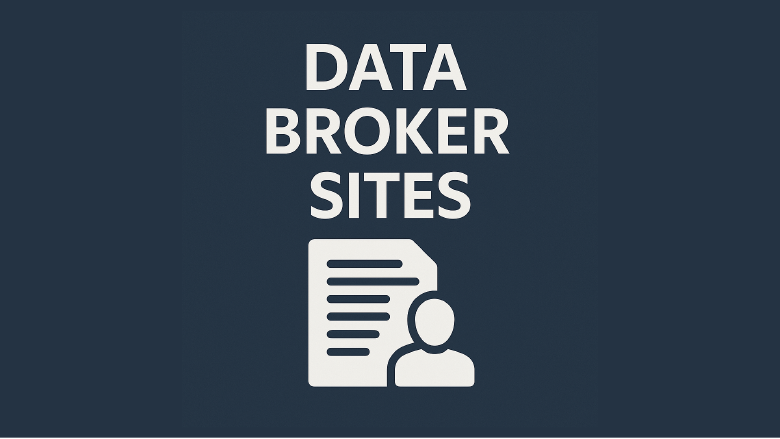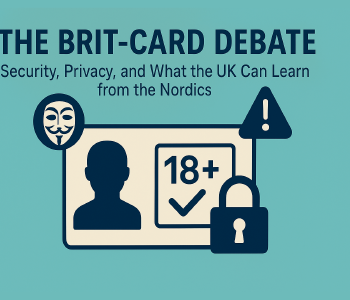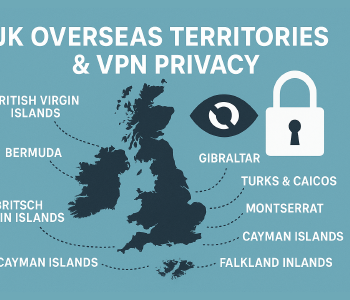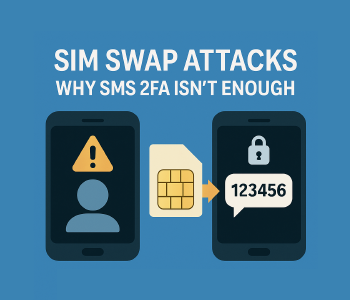
Data Broker Sites: What They Know About You (And How to Opt Out)
Ever Googled your name and found your home address, phone number, or even relatives’ names listed online? If so, you’ve already met the world of data broker sites — and they probably know more than you think.
These companies specialize in collecting, bundling, and selling your personal data. You never gave them permission, and most people don’t even know they exist — but they’re behind everything from creepy spam calls to targeted ads, background checks, and even credit risk profiles.
Here’s what data brokers do, how they get your information, and how you can start fighting back.
🕵️♂️ What Are Data Brokers?
Data brokers (also called “people search sites”, “information brokers” or “information resellers”) are companies that gather your personal information from public and semi-public sources, then sell it.
They operate quietly but legally in most countries, thanks to outdated privacy laws. Some of the biggest names include:
- Whitepages
- Spokeo
- PeopleFinders
- BeenVerified
- Intelius
- LexisNexis
- Acxiom
- CoreLogic
These aren’t hackers or dark web criminals — they’re registered businesses. And their clients include advertisers, employers, debt collectors, law enforcement, and even political campaigns.
📦 What Kind of Data Do They Collect?
Data brokers don’t just work with names and emails. They build deep profiles using information such as:
- Full name and aliases
- Current and past addresses
- Phone numbers (including mobile)
- Email addresses
- Date of birth
- Relatives and associates
- Education and job history
- Political affiliations
- Purchase history and online behavior
- Court records and criminal history
- Vehicle ownership and property data
They collect this from public records, marketing databases, social media, and online tracking tools — like cookies and web beacons.
Some data brokers even buy information from loyalty programs, mobile apps, or third-party trackers embedded in websites.
🧠 Why Does This Matter?
Most people don’t realize how much damage these profiles can cause:
- Scammers use them to impersonate family members or spoof “official” calls.
- Stalkers and abusers can track down home addresses and relatives.
- Employers or landlords might make decisions based on outdated or inaccurate records.
- Identity thieves use personal details to answer security questions or bypass verifications.
- AI models are now being trained on massive personal datasets, sometimes without consent.
In short: even if you’ve never signed up for a broker site, you’re probably listed on dozens of them.
🧹 Can You Remove Yourself From Data Broker Sites?
Yes — but it’s not easy. Most data brokers offer opt-out forms, but they’re often hidden, tedious, and inconsistent.
There are two main ways to remove your data:
1. Manually Opt Out (Free but Time-Consuming)
You can visit each data broker individually and fill out their opt-out form. Some may ask for:
- A valid email address
- A copy of your ID (blur sensitive parts)
- Confirmation links in follow-up emails
Here are a few direct opt-out pages:
Pro tip: use a temporary email alias and consider a VPN while browsing. Some sites track opt-out visitors.
2. Use a Paid Removal Service (Faster but Costs Money)
If you don’t have time to go site by site, there are services that will do it for you:
- DeleteMe (starting at ~$129/year)
- Privacy Bee
- Incogni
- Optery
- OneRep
These tools monitor major data broker networks and automate opt-outs, but keep in mind:
- Not all cover the same sites
- You’ll need to give them identifying info (some require ID)
- You still may have to follow up manually on a few
📊 Comparison Table: Manual Opt-Out vs. Paid Removal Services
| Feature | Manual Opt-Out | Paid Removal Services |
|---|---|---|
| Cost | Free | Typically $70–150/year |
| Time Required | High – hours to days | Low – setup in under an hour |
| Effort Level | Must fill out individual forms, verify emails, track progress | Automated by service; minimal manual input |
| Coverage | Limited to what you do yourself | Depends on service – some cover 50–150+ brokers |
| Privacy Tradeoff | You control what data is shared | You must share sensitive info with service |
| Speed of Results | Slow (2–6 weeks, varies by site) | Moderate to fast (1–4 weeks) |
| Ongoing Monitoring | Must check periodically on your own | Many services offer regular rechecks |
| Best For | DIYers, privacy-conscious users | Busy individuals, professionals, families |
🔄 The never ending job of staying opted out
Even after opting out, your info can come back.
Why? Because:
- Data brokers re-scrape public records regularly
- New brokers pop up every year
- Your info may appear with slightly different variations
It’s a maintenance task, not a one-time fix. We recommend:
- Quarterly self-checks on major broker sites
- Signing up for a monitoring/removal service
- Locking down your data at the source (e.g., limiting what you post or share)
🛡️ How to Minimize Data Exposure
Beyond opting out, there are smart habits that reduce your risk:
- Use a VPN: Prevents IP-based tracking and location leaks
- Avoid using real details on non-essential sign-ups
- Delete old accounts with tools like JustDelete.me
- Use email aliases (SimpleLogin, Firefox Relay, DuckDuckGo Email Protection)
- Turn off ad personalization on Google, Facebook, and others
- Use a secure browser with tracker blocking (Brave, Firefox + uBlock Origin)
Want a deeper clean? Consider services like Proton Pass or Bitwarden to generate and store secure logins — and privacy-first VPNs like Proton VPN or Mullvad to hide your IP and location.
⚖️ Legal Context: Why Is This Allowed?
Despite how invasive it feels, data broker activity is legal in many countries — especially in the U.S. — due to weak or outdated privacy laws. Here’s a breakdown:
🇺🇸 United States
- There is no comprehensive federal privacy law protecting personal data across all industries.
- Most data brokers rely on information from public records, which are legally accessible (e.g., voter rolls, property deeds, court records).
- Consumer data collected through loyalty programs, online tracking, or social media is often treated as voluntarily disclosed under Terms of Service.
- Some protections exist, but they’re limited:
- California Consumer Privacy Act (CCPA) and CPRA: Let California residents request data removal.
- Vermont and Virginia have laws requiring data broker registration.
- Federal laws like FCRA, HIPAA, or GLBA apply only to specific sectors (credit, health, finance).
🇪🇺 Europe (GDPR)
- The General Data Protection Regulation (GDPR) requires explicit consent for data use and provides a “right to be forgotten.”
- Data brokers in the EU must disclose what data they have and delete it on request — or face steep penalties.
🌐 Other Countries
- Canada (PIPEDA) and Australia (Privacy Act) provide moderate protections.
- Many countries are still catching up with legislation, and enforcement is patchy.
✅ The Bottom Line
Data broker sites are the silent privacy threat most people ignore — until it’s too late. They profit by selling your personal details to the highest bidder, and they’re incredibly difficult to avoid completely.
But with the right tools and a little persistence, you can limit their reach.
Start by opting out of the major brokers. Use privacy tools to minimize future exposure. And keep checking back — because in the data economy, staying off the list is a full-time job.






